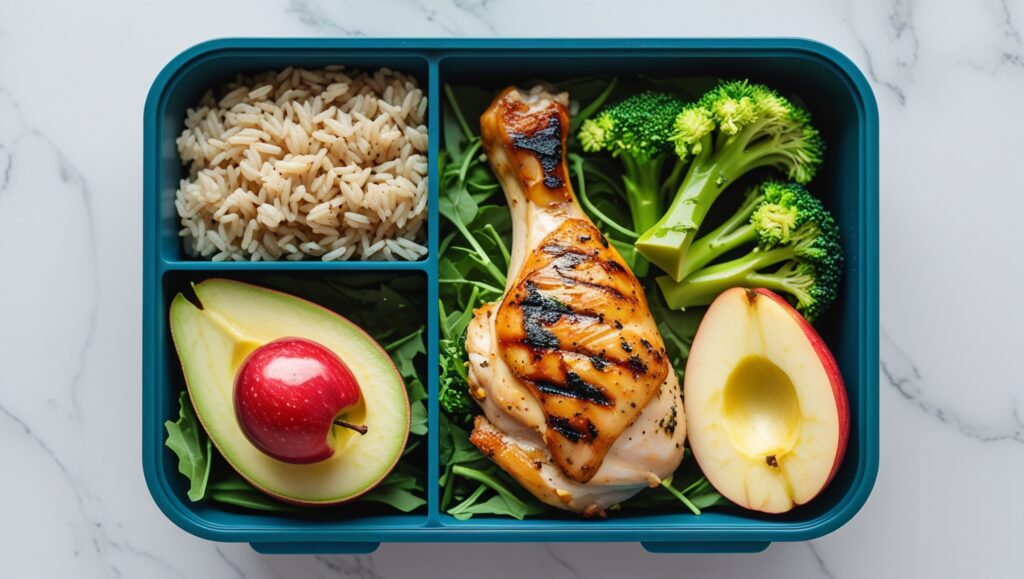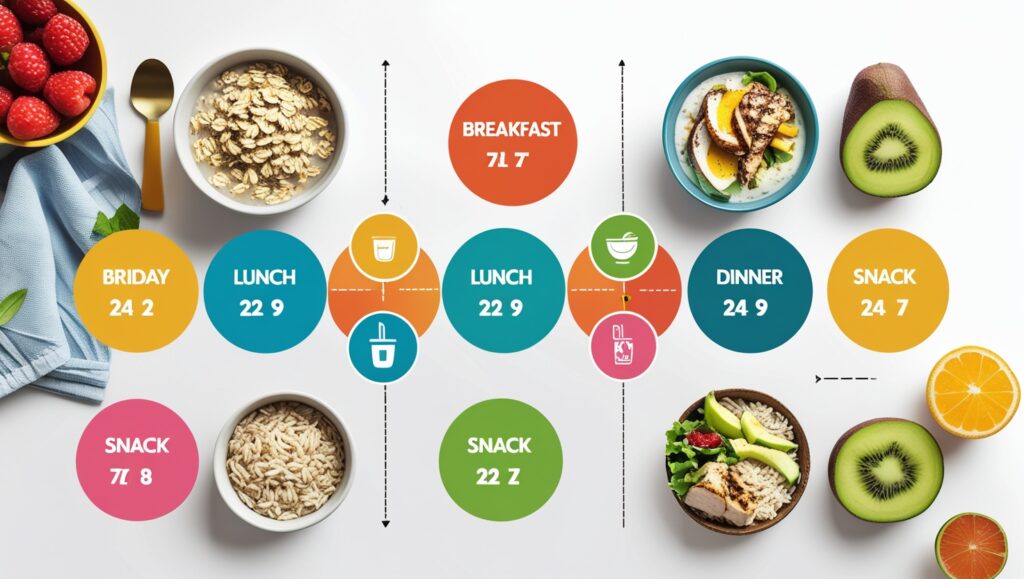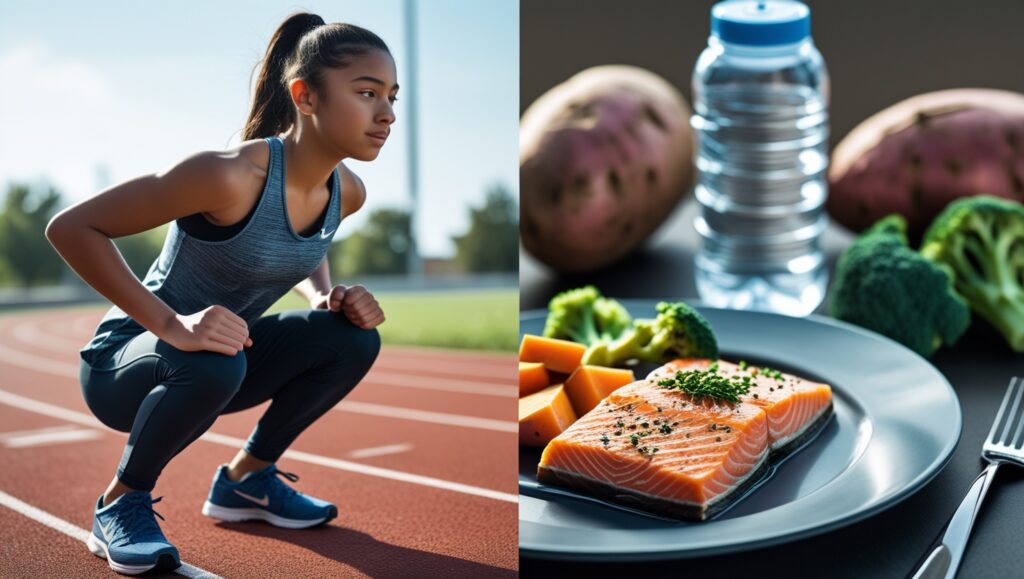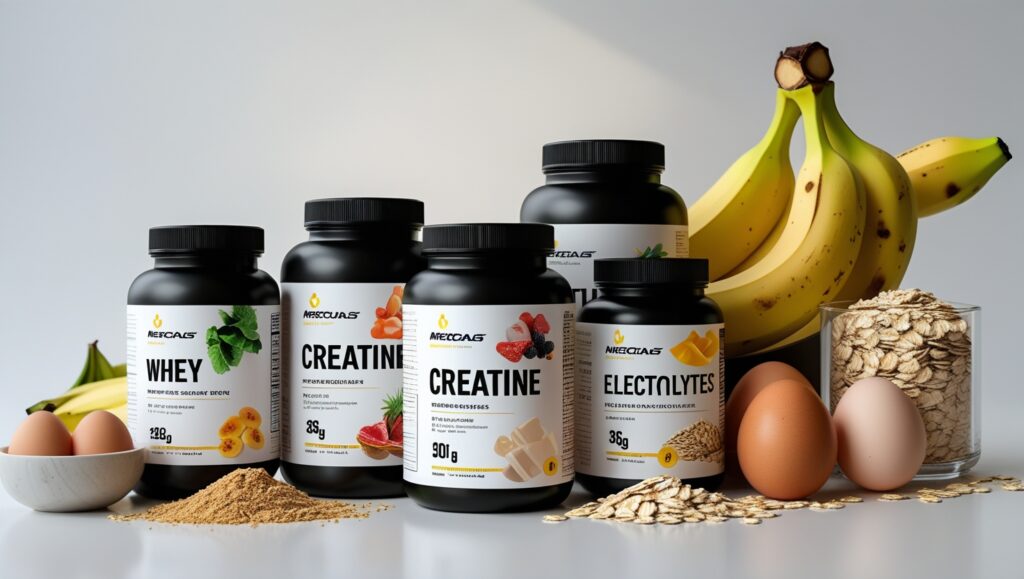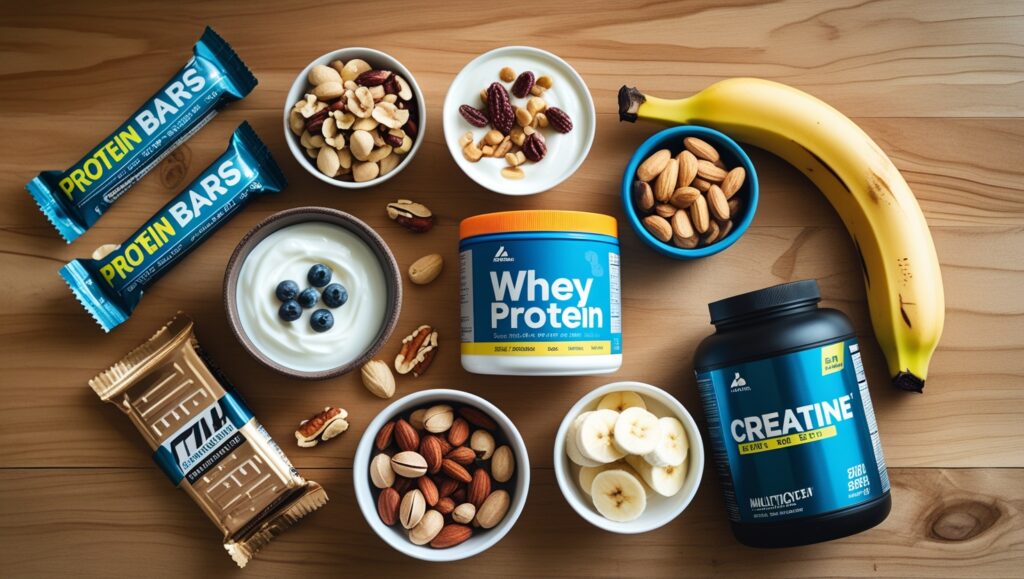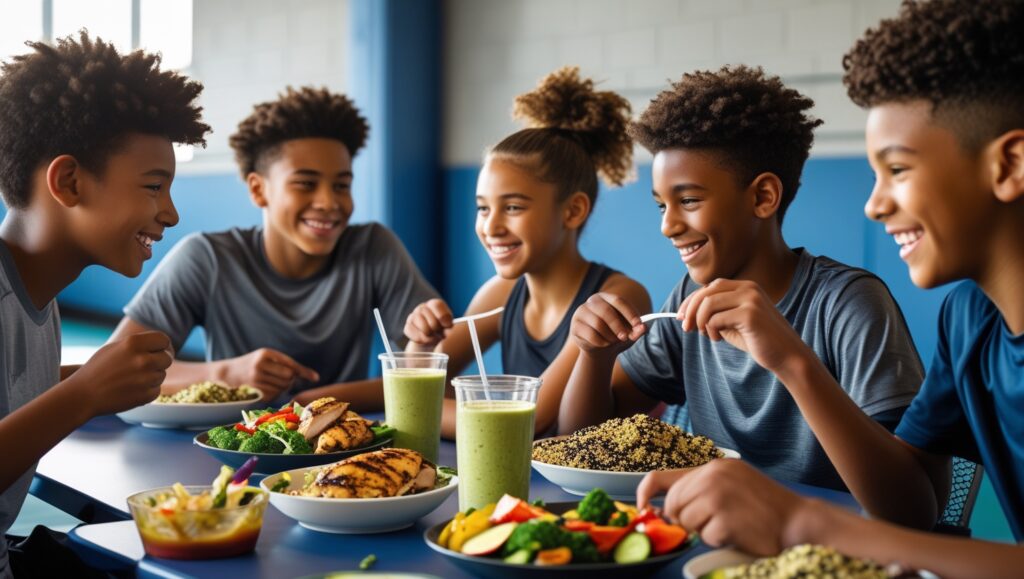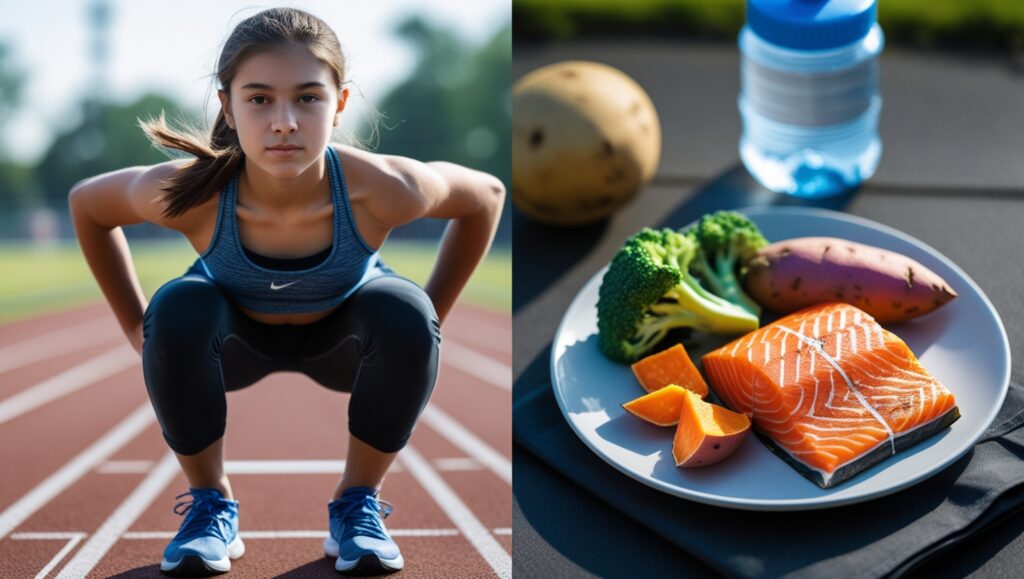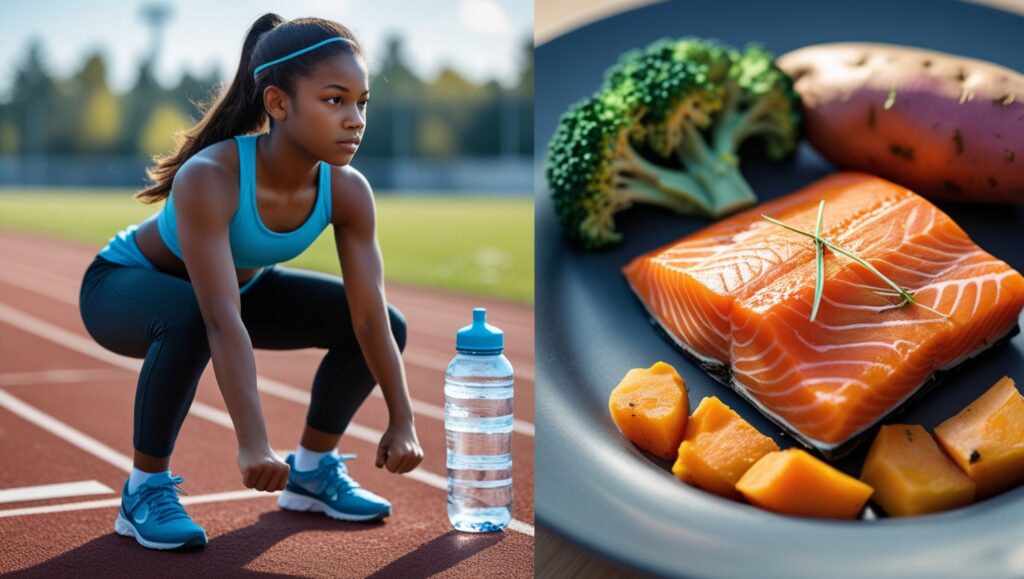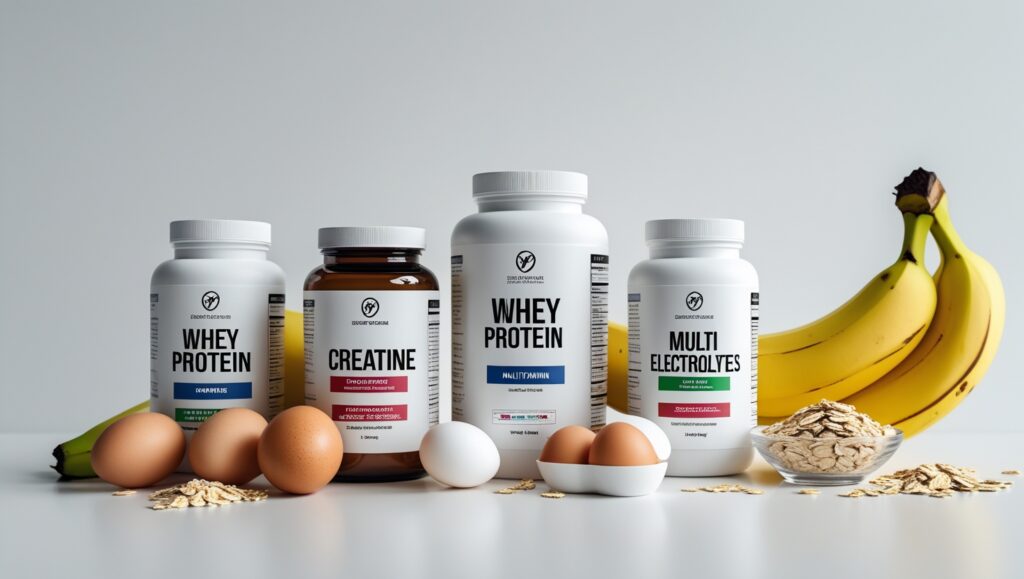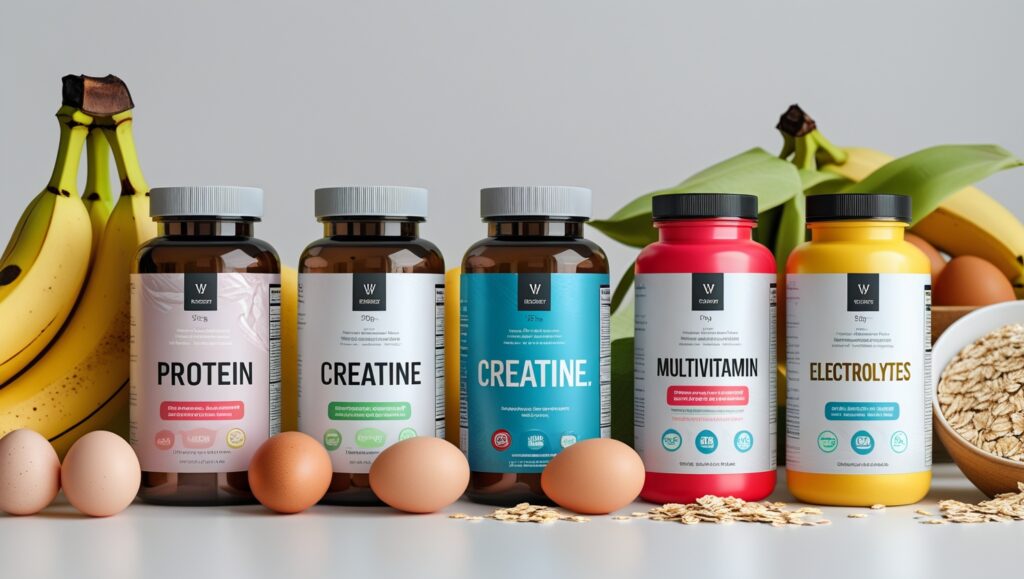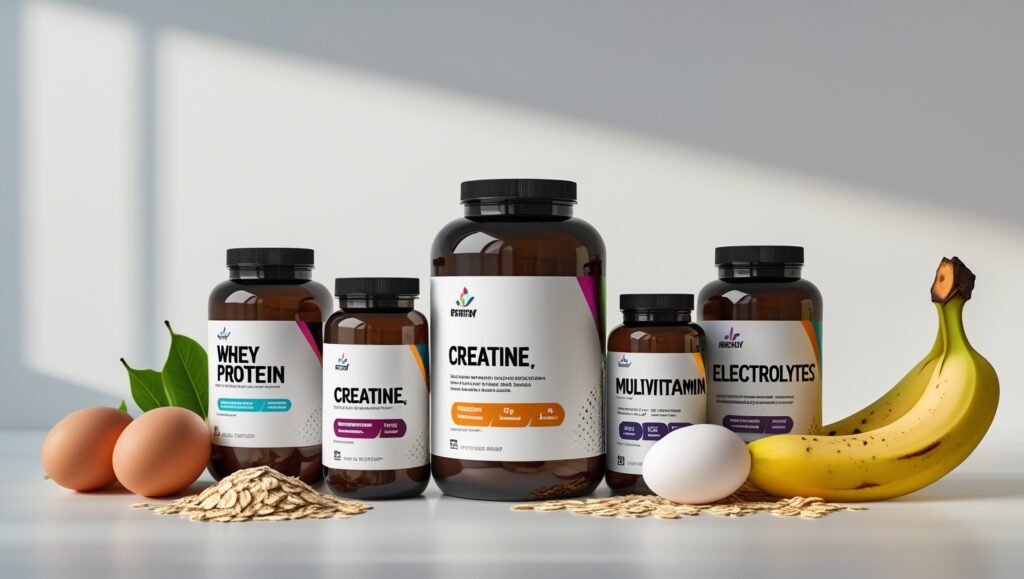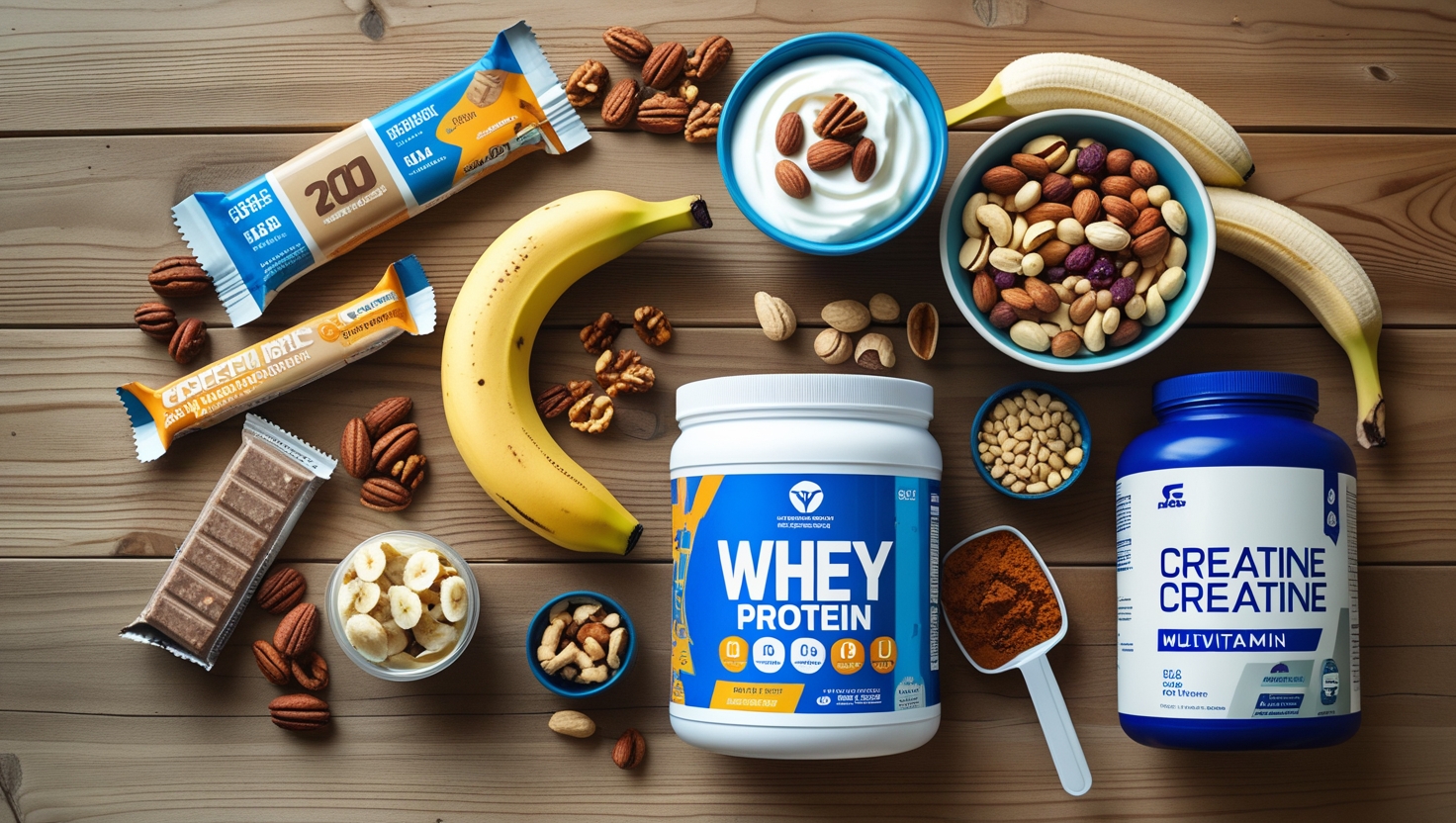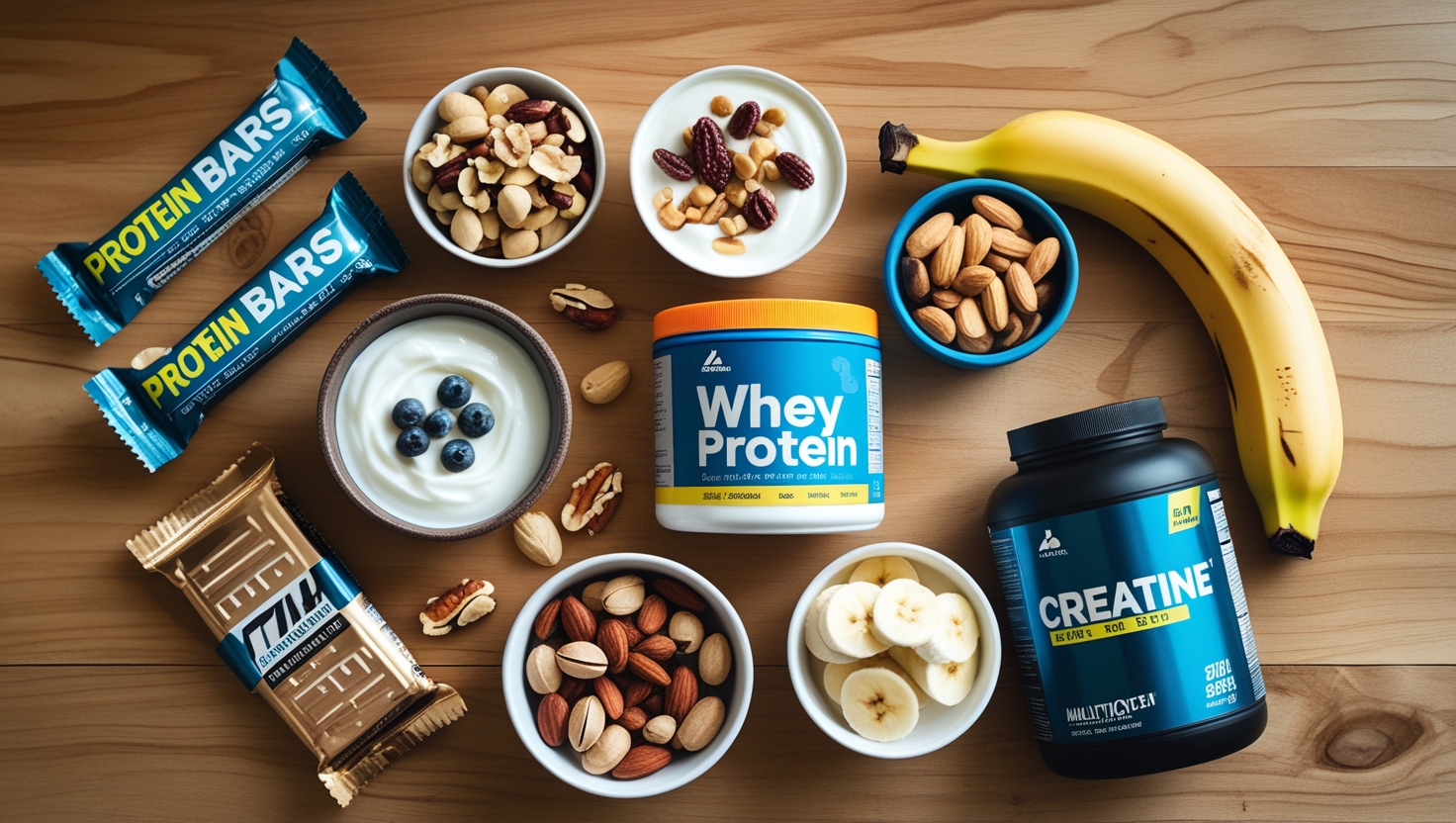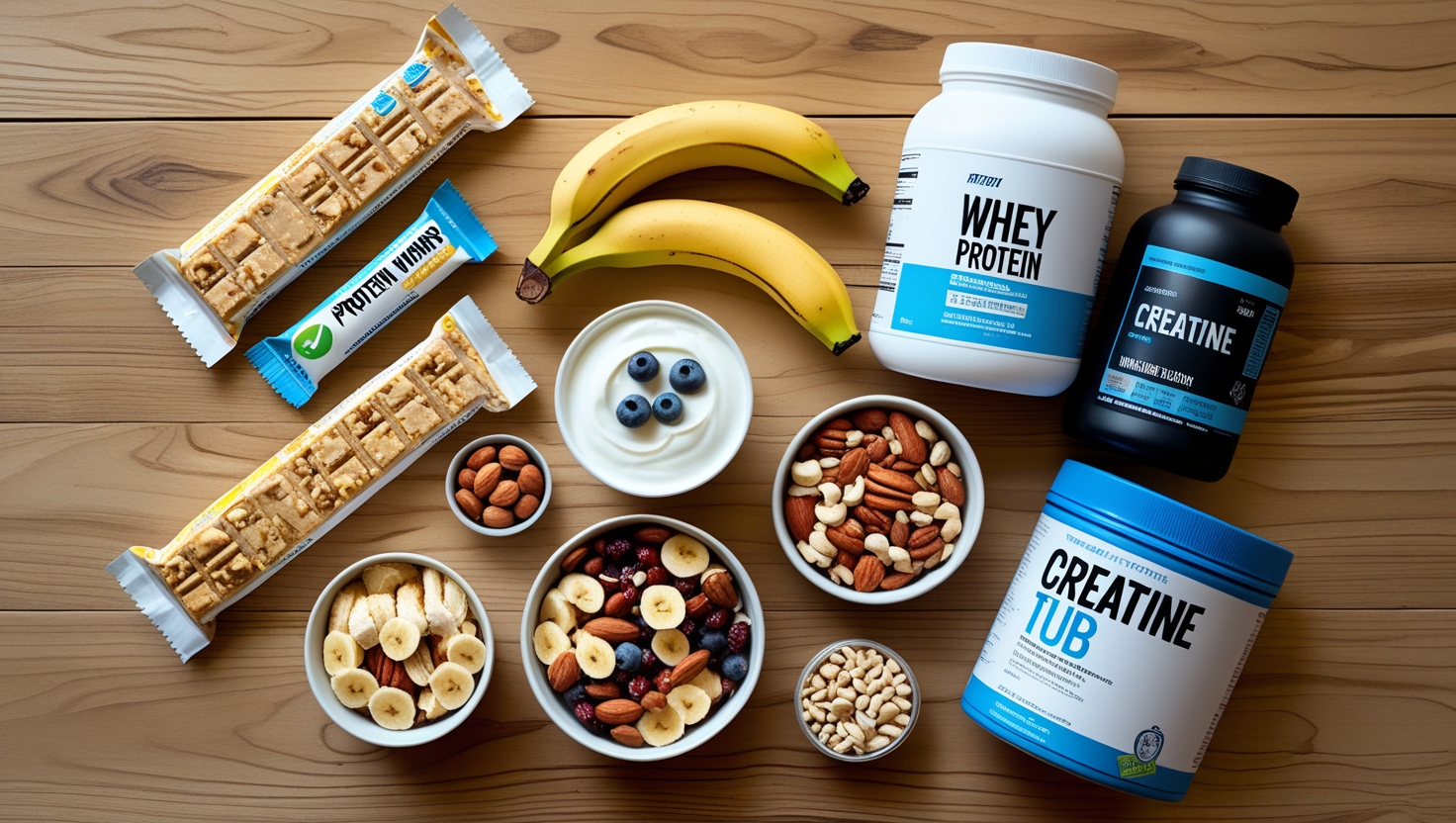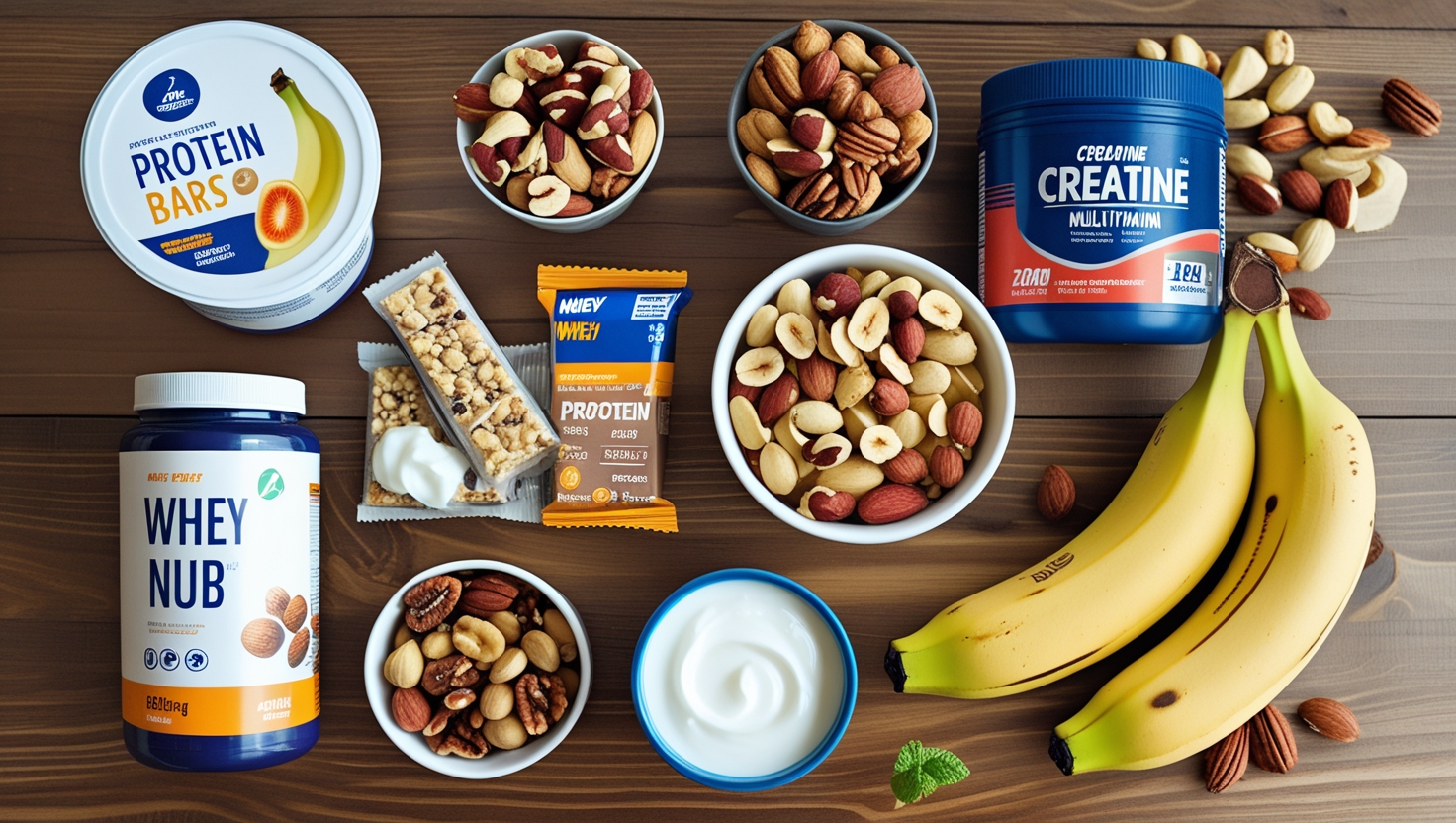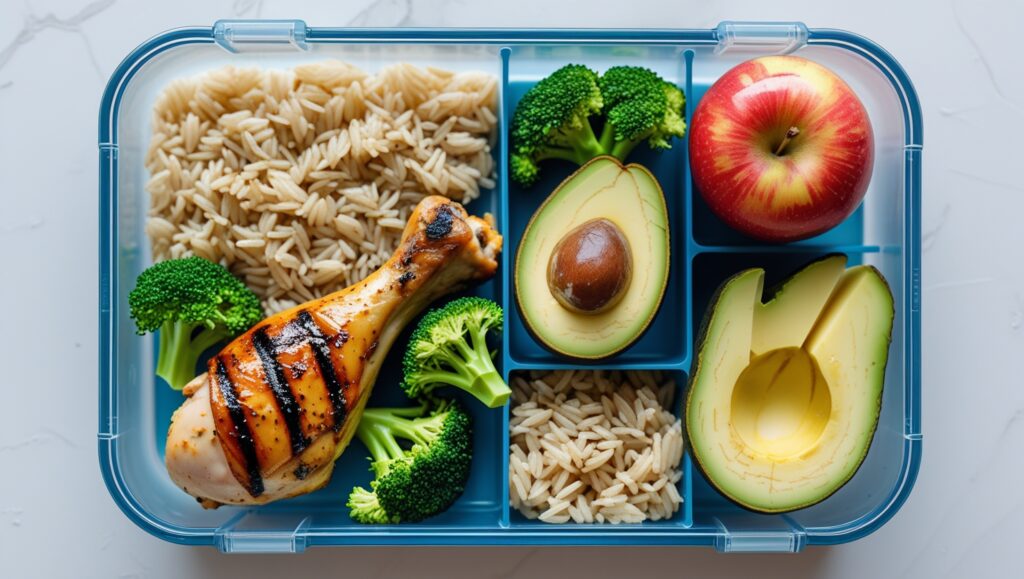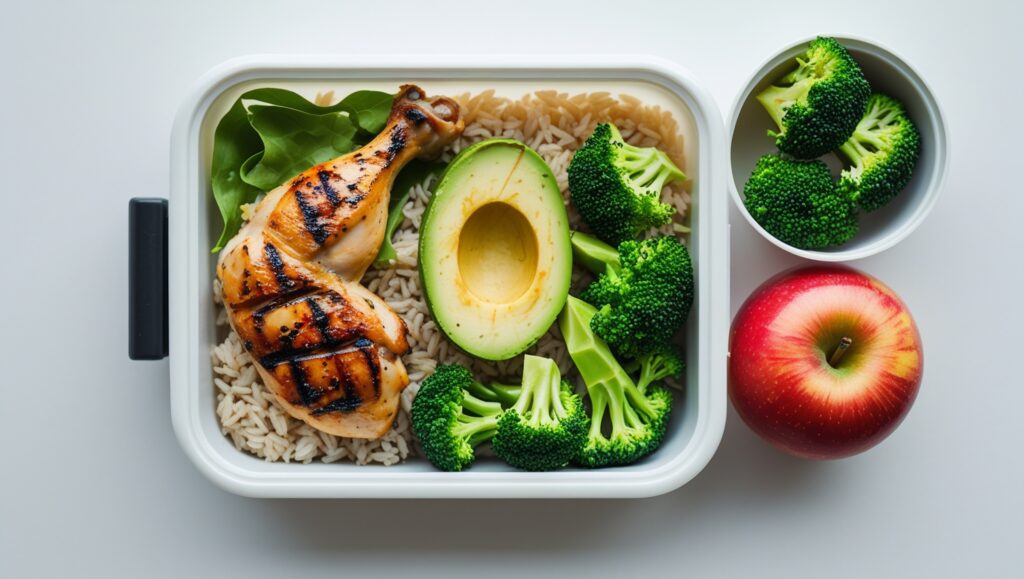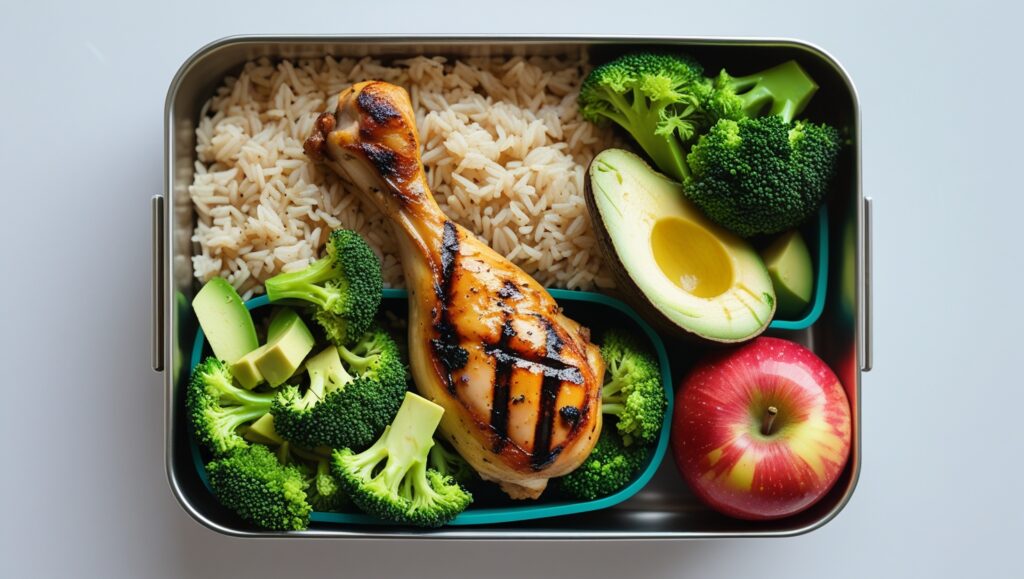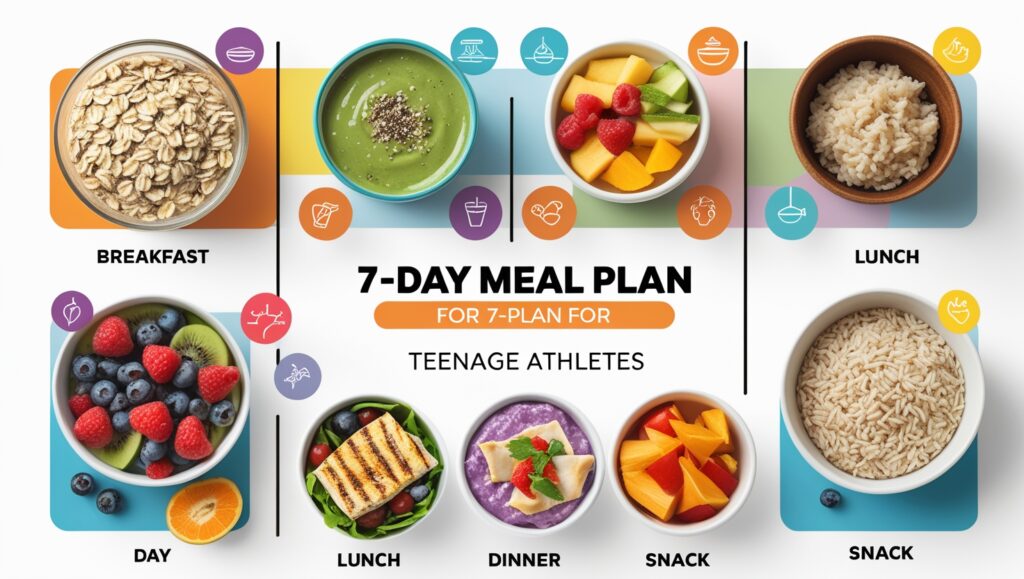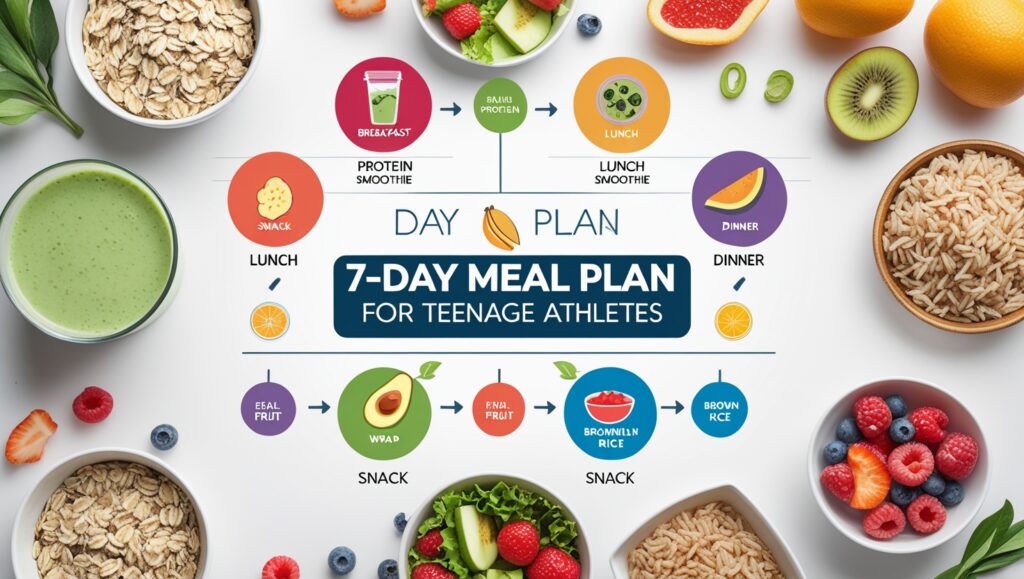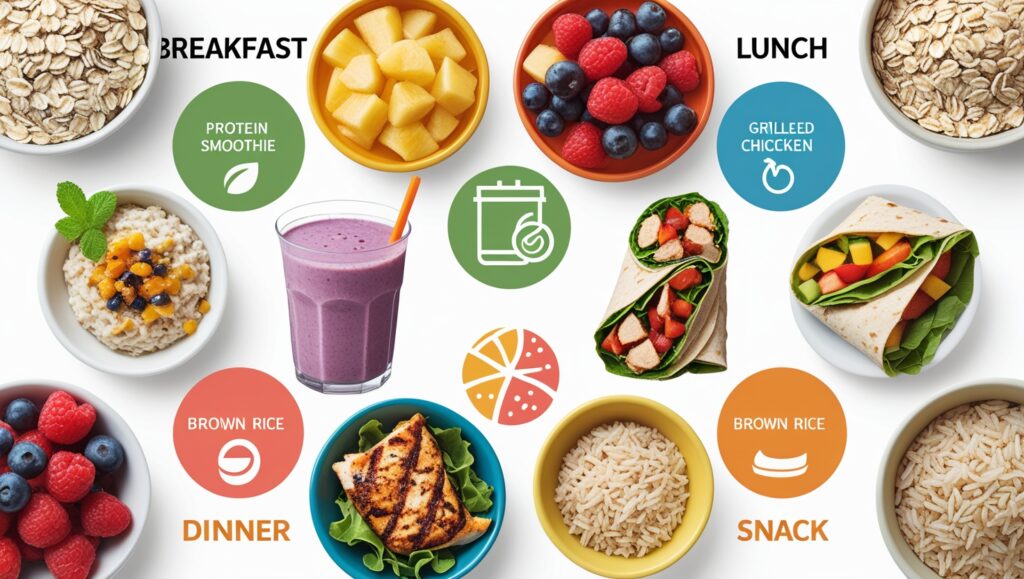Food for Teenage Athletes
Requirement of right Nutrition for athletes is essential, especially for teen athletes who demand more energy, strength, and recovery support than their non-athletic peers. Based on knowledge and experience,the best food for teenage athletes is how to structure a diet that supports growth, performance, overall health and current nutritional science. I will cover everything from healthy meals and snacks to supplements, meal plans, and key nutrients.
Table of Contents
Healthy Food for Teenage Athletes
Food for teenage athletes requires more calories and nutrients due to higher energy expenditure and physical demands. Healthy food choices should include a balance of:
- Complex Carbohydrates – Brown rice, whole wheat bread, quinoa, oats, sweet potatoes. These fuel workouts and recovery.
- Lean Proteins – Chicken, turkey, fish, eggs, lentils, tofu, and dairy support muscle repair and growth.
- Healthy Fats – Avocados, nuts, seeds, and olive oil are essential for joint health and hormonal balance.
- Fruits and Vegetables – Rich in vitamins, minerals, and antioxidants. Aim for a colorful variety.
- Dairy or Alternatives – Provide calcium, protein, and Vitamin D for strong bones and recovery.
A teen athlete’s food should be vibrant, balanced, and nutrient-dense to meet their performance and recovery needs.
Nutrition for Teenage Athletes
Nutrition is more than just calories—it’s about timing, quality, and variety. Here’s how to break it down:
- Before training or a game: Concume simple carbs and a bit of protein. Example: banana with peanut butter or a yogurt smoothie.
- During activity (for sessions over 60 minutes): Rehydrate with electrolyte water or a banana if needed.
- After training: Consume protein with carbs within 30–60 minutes to maximize muscle recovery. A sandwich with lean meat and fruit works well.
Key nutrients for athletic teens:
- Iron – For oxygen transport. Found in red meat, beans, spinach.
- Calcium and Vitamin D – For bone development. Found in milk, cheese, fortified cereals.
- Magnesium and Zinc – Crucial for muscle function and immunity.
You should understand that timing and quality are critical. Eating every 3–4 hours supports metabolism, energy, and muscle repair.
Protein Powder for Teenage Athletes
Many teens turn to protein powders, but are they necessary? If the athlete is consuming enough protein through diet, supplements are often not required.
When to consider protein powder:
- Inadequate protein intake through meals.
- High training volume or back-to-back events.
- Need for a quick post-workout option.
Safe protein powders for teens:
- Whey Protein Isolate (low in lactose, fast-digesting).
- Plant-based protein (pea, brown rice) – great for dairy-sensitive individuals.
Always choose third-party tested, additive-free options. Consult a pediatrician or sports dietitian before use.
Best Supplements for Teenage Athletes
While food always comes first, supplements can fill in nutritional gaps. The best supplements for teenage athletes are safe, age-appropriate, and based on individual need:
- Vitamin D – Especially important if sun exposure is limited.
- Calcium – If dairy intake is low.
- Omega-3 (Fish Oil) – For joint health, inflammation control, and brain function.
- Iron – Only if a deficiency is diagnosed.
Note: Never self-prescribe. Blood tests and guidance from healthcare professionals are essential before starting any supplement.
Creatine for Teenage Athletes
Creatine is a well-researched supplement commonly used by adult athletes. But what about teens?
What the research says:
- Creatine can improve strength, sprint performance, and muscle mass.
- It is generally safe when used in recommended doses under supervision.
Is creatine safe for teens?
- The American Academy of Pediatrics does not endorse routine creatine use for under-18 athletes.
- If used, it should be under the guidance of a physician or certified sports dietitian.
Bottom line: Creatine is not essential and should never replace proper nutrition.
Healthy Snacks for Teenage Athletes
Snacks are essential for teens who often train multiple times a day or have long school and practice schedules. Here are high-energy, nutrient-rich options:
Pre-practice snacks:
- Apple with almond butter
- Greek yogurt with granola
- Energy bar with low added sugar
Post-practice snacks:
- Chocolate milk (great carb-to-protein ratio)
- Turkey sandwich on whole grain bread
- Cottage cheese with berries
Other great snacks include trail mix, boiled eggs, smoothies, and protein muffins.
Lunch Ideas for Teenage Athletes
Lunch should provide sustained energy for afternoon training or school. Try to include all macronutrients:
Sample lunch ideas:
- Grilled chicken wrap with lettuce, tomato, cheese, and a side of fruit
- Brown rice with black beans, avocado, salsa, and shredded cheese
- Turkey sandwich with hummus and a banana
- Egg salad sandwich on whole grain bread with carrot sticks
- Leftover grilled salmon with quinoa and steamed broccoli
Ensure hydration with water or a low-sugar electrolyte drink.
Best Multivitamin for Teenage Athletes
A high-quality multivitamin can support overall health when diet alone may not meet all needs. Look for:
- Age-appropriate formulas
- Third-party testing (NSF Certified or USP Verified)
- No megadoses—teens don’t need extreme amounts
Recommended ingredients in a multivitamin:
- B-complex (for energy)
- Vitamins A, C, D, E (for immune function)
- Iron (especially for female athletes)
- Zinc and magnesium
Brands like SmartyPants, Nature Made Teen, or Thorne Basic Nutrients are commonly trusted.
7-Day Meal Plan for Teenage Athletes
Here’s a sample 7-day meal plan for teenage athletes to maintain energy, strength, and recovery. Adjust portions based on individual needs and training load. If in doubt, consult your dietitian
Day 1
- Breakfast: Oatmeal with banana, peanut butter, and milk
- Lunch: Chicken wrap + fruit salad
- Snack: Greek yogurt + berries
- Dinner: Grilled salmon, brown rice, mixed vegetables
Day 2
- Breakfast: Scrambled eggs, whole wheat toast, orange
- Lunch: Turkey sandwich, carrot sticks, apple
- Snack: Trail mix
- Dinner: Spaghetti with lean meat sauce, spinach salad
Day 3
- Breakfast: Smoothie with protein, spinach, berries, almond milk
- Lunch: Quinoa bowl with beans, veggies, and avocado
- Snack: Hard-boiled eggs + banana
- Dinner: Chicken stir-fry with brown rice
Day 4
- Breakfast: Whole grain waffles + peanut butter + strawberries
- Lunch: Tuna sandwich + cucumber slices
- Snack: Cheese sticks + crackers
- Dinner: Beef tacos + corn + salad
Day 5
- Breakfast: Greek yogurt parfait with granola and fruit
- Lunch: Grilled chicken sandwich + pear
- Snack: Smoothie or protein shake
- Dinner: Baked fish + quinoa + steamed broccoli
Day 6
- Breakfast: Protein pancakes + maple syrup + milk
- Lunch: Egg salad wrap + fruit
- Snack: Almonds + apple
- Dinner: Turkey meatballs + whole wheat pasta + salad
Day 7
- Breakfast: Chia seed pudding + berries
- Lunch: Veggie burrito bowl + guacamole
- Snack: Protein bar
- Dinner: Grilled chicken + mashed sweet potatoes + peas
Always hydrate throughout the day—water is best.
FAQs
1. What is the best diet for a teenage athlete?
A balanced diet with complex carbs, lean protein, healthy fats, fruits, vegetables, and hydration is best. Focus on whole, minimally processed foods and consistent meals.
2. Should teenage athletes take protein powder?
Only if dietary protein intake is inadequate or if quick recovery meals are needed. Choose safe, clean-label options and consult a healthcare provider first.
3. Is creatine safe for teen athletes?
Creatine should only be considered under professional supervision. Most teens do not need creatine if they follow a proper nutrition plan.
4. How many calories does a teenage athlete need daily?
Calorie needs are very esssential but it varies, based on age, gender, activity level, and sport. On average, teen athletes may need 2,800–4,000 calories daily to support training and growth.
Conclusion
The best food for teenage athletes is real, wholesome, and well-balanced. By focusing on smart nutrition, teens can improve their performance, recover faster, and build lifelong healthy habits. While supplements like protein powders or multivitamins can help in some cases, they should never replace good food.
Always consult with a registered dietitian or sports nutritionist for personalized advice—because fueling a teenage athlete isn’t just about eating more, it’s about eating smart.

